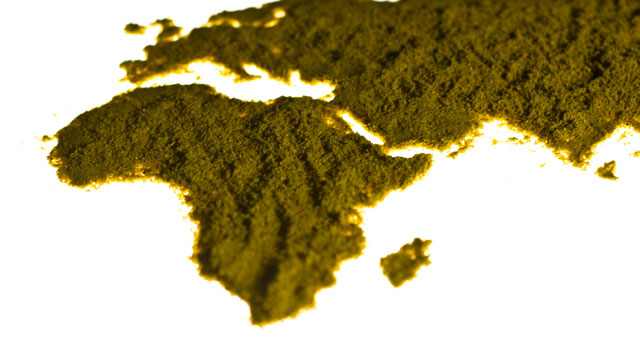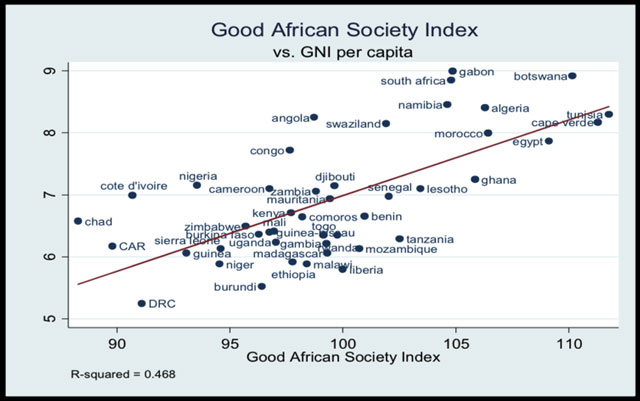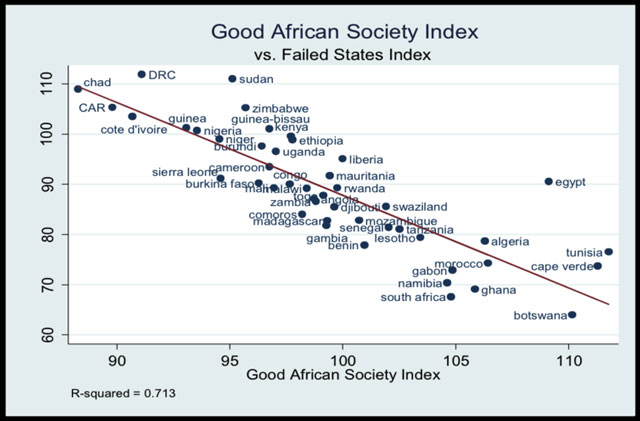
Which is the best African country for citizens to live in? A recently developed barometer has measured just that.
The Good African Society Index, published in 2015, measures the quality of society in African states, exploring how African countries perform relative to each other in a number of domains.
The index draws on the concept of the “good society”, articulated in American political commentator Walter Lippman’s 1937 work, The Good Society, as a basis for a well-functioning society. The Good Society Framework provides a flexible paradigm for examining the qualities that a good society should have. It was used as an underlying theoretical framework in the development of the African index.
Measuring the ‘good society’
Drawing on this framework, political scientist Sören Holmberg compiled the first Good Society Index in 2007. His index used measures of life expectancy, infant mortality and life satisfaction. In this view, the better a country managed to attain the various elements contained in the index, the closer it came to being a “good society”. These broadly encompassed traits such as genuine caring for others, sensible policies and improving the well-being of citizens.
Of the 71 countries examined on Holmberg’s index, eight were African, namely Algeria, Egypt, Morocco, Nigeria, South Africa, Tanzania, Uganda and Zimbabwe. Algeria ranked highest among African countries but only 55th overall, while Zimbabwe and Tanzania took up the bottom two ranks.
In 2014, Holmberg and Rothstein used the same three components to construct an index for 149 countries, 42 of them African. The highest ranked African nation was Libya at 59, followed by Mauritius (at 66) and Tunisia (at 76). Twenty-seven of the countries in the bottom 30 were from Africa.
A new African index
The Good African Society Index was constructed for 45 countries. Due to data unavailability, Eritrea, Equatorial Guinea, Libya, Mauritius, São Tomé and Príncipe, Seychelles, Somalia, Sudan and South Sudan were not included.
The African index contains nine primary components, each with four indicators. The main components, with examples of indicators in brackets, are:
- Economic performance (such as population living below the poverty line of US$2/day);
- Democracy, freedom and governance (including press freedom);
- Child well-being (such as child mortality);
- Environment and infrastructure (CO₂ emissions, for example);
- Safety and security (homicide rate and other factors);
- Health and health systems (such as obesity levels);
- Integrity and justice (example, corruption levels);
- Education (such as expected years of schooling); and
- Social cohesion and social sustainability (example, stock of immigrants).
The results
Tunisia has the highest overall ranking on the index. It scores highest in the areas of child well-being, environment and infrastructure, education, and social sustainability and cohesion. In the overall rankings, it is followed by Cape Verde and Botswana, which has the highest scores in both safety and security, and integrity and justice. Ghana (seventh overall) tops the economic performance ranking; South Africa (ninth overall) performs best in democracy, freedom and governance; and Egypt (fourth overall) scores highest in health and health systems. Only Botswana and Cape Verde perform above average in all components of the index. Tunisia scores slightly below average in economic performance.
On the other end of the spectrum, Chad is the lowest ranked country, scoring worst in child well-being and very poorly in the education, and social cohesion and social sustainability measures. The Central African Republic, Côte d’Ivoire and the Democratic Republic of Congo perform only marginally better, scoring very low in safety and security. The Central African Republic scores lowest in education. Zimbabwe is worst ranked for integrity and justice.
Is wealth a factor?
Countries with better African index scores generally have higher gross national income per capita — that is, richer nations tend to rank higher on the Good African Society Index, as shown in the graphic below.

But this is not always the case. Some, like Ghana, score relatively well despite having a low gross national income per capita. Tunisia and Cape Verde score highest on the African index, but have relatively low gross national income per capita. Conversely, South Africa and Gabon have the highest gross national income per capita, yet score much lower than Tunisia and Cape Verde.
So, while a higher national wealth may correlate with a better society, it does not always explain country differences in the scores.
Good societies and resilient states
The African index can be plotted against the Fragile States Index (see graphic below) as a point of comparison. Compiled by the Fund for Peace, the Fragile States Index highlights critical current and potential problems in countries, and flags areas of growing or potential conflict.

Countries on the Fragile States Index are categorised into one of four cascading categories — “sustainable”, “stable”, “warning” and “alert” — with sub-classifications within categories.
In this comparison, states that perform well on the African index seem to be at a lower level of state fragility. But there are exceptions: Egypt scores poorly (“alert”) on the fragility index, but well on the Good Society Index. Good Society Index leaders Tunisia and Cape Verde both fall into the “high warning” category.
Putting the numbers in context
A high index score should be viewed within a broader context. Compared with African countries only, Tunisia performs well in the various index components. But it might not perform as well relative to non-African nations.
Similarly, countries performing well on the African index seem to be less fragile — but even Botswana, the least fragile state in Africa, falls into the “warning” category on the Fragile States Index. Countries rated high on the Good African Society Index remain fragile states, even if they are at less risk of complete failure.
And some countries, like Djibouti and Mali, exhibit substantial variation across categories, scoring well in some African index components but very poorly in others. Most, however, rank only average or below average on the index and its sub-components.
Overall, most African countries have many areas in which to improve. Intensifying the focus on these areas is likely to improve the overall well-being of African citizens in the long run. To the extent that the indicators in the Good African Society Index are accepted as plausible, the results could provide a useful framework upon which targeted policy interventions could be grounded.![]()
- Ferdi Botha is senior lecturer, department of economics and economic history, Rhodes University
- This article was originally published on The Conversation

